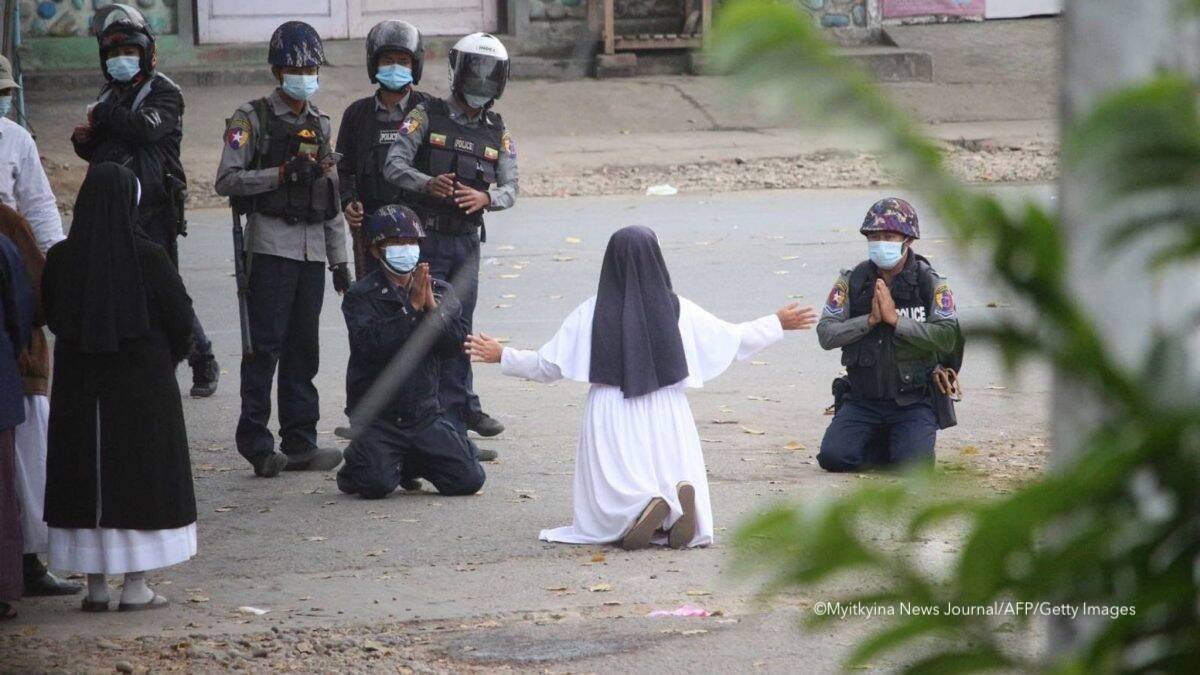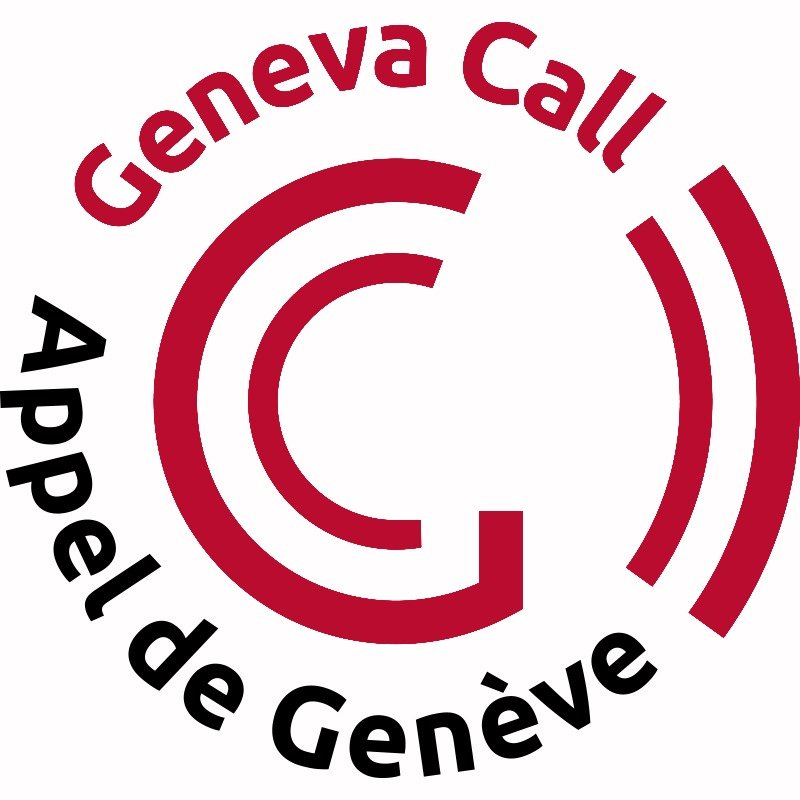
The Generating Respect Project Conference
8-10 December 2021
Religious Actors & Humanitarian Norms Compliance
in Armed Conflict: Roles, Influence, Engagement
Watch the recording of the conference proceedings
and of the opening & closing roundtables.
This online conference takes stock of developments relating to the engagement between humanitarians and religious actors aimed at generating greater compliance with humanitarian norms in times of armed conflict. It seeks to serve as a platform for exchange and reflection among scholars from across various disciplines, humanitarian practitioners, and religious actors.
Through its opening and closing roundtables, the conference connects the topic of religious actors as potential norm-compliance generators with other innovative strategies of generating respect for international humanitarian law and international human rights law, specifically civilian engagement and peer pressure.
Wednesday, 8 December 2021, 17:00 – 18:00 GMT
Opening Roundtable: Civilian Engagement as a Strategy to Enhance Norm Compliance in Armed Conflict
Contrasting with narratives, which portray civilians as mere victims of conflict, recent interdisciplinary studies focus on the agency of civilians and the roles they (can) play in armed conflict. Specifically, we see an exponential interest civilian activities relating to State and non-State armed groups’ compliance with international humanitarian law and international human rights law. This is because, as the International Committee of the Red Cross has noted, civilians ‘do not wait for humanitarian actors to analyse and address the problems and threats they face. They permanently monitor their surroundings and take decisions themselves’, including concerning self-protection mechanisms.
This roundtable is co-organised by the Generating Respect Project and the humanitarian organisation Geneva Call.
Participants will reflect on the role of civilians as key actors for enhancing respect for humanitarian norms in conflict settings. They will share theoretical reflections and practical insights on the topic, highlighting possible successes and challenges.
Chaired by Mr Ezequiel Heffes, Geneva Call, the participants in the roundtable are:
Thursday, 9 December 2021, 9:45 – 17:45 GMT
Conference Proceedings: Religious Actors & Humanitarian Norm Compliance in Armed Conflict
-
9:45 – 10:00 Welcome Address
Dr Ioana Cismas, Centre for Applied Human Rights and York Law School, University of York
Mr Ezequiel Heffes, Geneva Call
Watch the Welcome Address! -
10:00 – 11:00 Session 1/ Religion, its actors and international humanitarian law
Speakers:
Dr Eve Massingham, University of Queensland
Exploring the role of religious actors in generating respect for the laws of war: a Common Article 1 perspectiveDr Maria Varaki, King’s College London
Generating moderation from Istanbul to Jerusalem and AthensChair & discussant: Mr Stephen Wilkinson, Diakonia International Humanitarian Law Centre
Watch the recording of session 1!
-
11:45 – 13:00 Session 2/ Institutional religious leadership and armed conflict
Speakers:
Dr Piergiuseppe Parisi, University of York & Mr Mohamed Assaleh, Geneva Call
Confronting rifles with words: the High Islamic Council of Mali and armed non-State actorsDr Adelaide Madera, University of Messina
The Role of the Catholic Church in the field of International Humanitarian LawDr Chris Morris, University of Portsmouth
Religious leadership in armed conflict: the need to address unconventional forms of authorityChair & discussant: Ms Émilie Max, Geneva Academy of International Humanitarian Law and Human Rights
Watch the recording of session 2!
-
14:00– 15:15 Session 3/ Religious leaders’ influence: Colombia, the Democratic Republic of Congo, Myanmar
Speakers:
Dr Piergiuseppe Parisi, University of York & Ms Yolvi Lena Padilla Sepúlveda, The Generating Respect Project
The role of Christian religious actors in the Colombian conflict: from visible influencers to discreet protagonistsDr Mulanda Jimmy Juma, Mennonite Central Committee
The influence of Congolese religious organisations on armed conflicts in the Democratic Republic of Congo: Lessons from the fieldMr Christopher Rush, The Generating Respect Project & Dr Ioana Cismas, University of York
The relational influence between religious actors and the Kachin Independence Organisation/ ArmyChair & discussant: Mr Ezequiel Heffes, Geneva Call
Watch the recording of session 3!
-
15:45 – 16:30 Session 4/ Religious leaders’ influence – Lessons from the field: Jordan and Libya
Speakers:
Ms Ella Allen, IDARE
The influence of women religious leaders in enhancing IHL compliance in JordanMs Hasnaa El Jamali, The Generating Respect Project & Dr Ioana Cismas, University of York The multifactorial influence of Madkhali Salafism on Libyan armed actors
Chair & discussant: Professor Tanisha Fazal, University of Minnesota
Watch the recording of session 4!
-
17:00 – 17:45 Session 5/ Religious leaders in armed conflict – Lessons from the field: Syria and Yemen
Speakers:
Ms Marta Furlan, The Generating Respect Project & Mr Omar Ahmed, Geneva Call Novel Paths towards Respect for IHL and IHRL: Explaining the Influence of Religious Leaders on Armed Groups in Yemen and Syria
Mr Yousuf Syed Khan, Office of the United Nations High Commissioner for Human Rights
Overlooked iconoclasm: intangible heritage and endangerment in SyriaChair & discussant: Dr Katharine Fortin, University of Utrecht
Watch the recording of session 5!
Friday, 10 December 2021, 10:00 – 12:15 GMT
Conference Proceedings (continued)
-
10:00 – 11:00 Session 6/ Religion and law: potentialities and limitations for engagement
Speakers:
Dr Jennifer Philippa Eggert, Joint Learning Initiative on Faith and Local Communities/ University of Leeds
Countering Violent Extremism, Humanitarian Response and Faith: Practical Insights from a Research Capacity-Building ProjectDr Miriam Abu Salem & Dr Ludovica Decimo, Università degli Studi della Campania “Luigi Vanvitelli”
Religious declarations and humanitarian LawDr Ahmed Al-Dawoody & Ms Kelisiana Thynne, International Committee of the Red Cross
Protection of the natural environment in conflict under IHL and Islamic lawChair & discussant: Dr Julie Fraser, University of Utrecht
Watch the recording of session 6!
-
11:30 – 12:15 Session 7/ Humanitarian engagement with religious leaders
Speakers:
Dr Olivia Wikinson, Joint Learning Initiative on Faith and Local Communities & Professor Emma Tomalin, University of Leeds
Secular-religious dynamics and their effect on humanitarian norms complianceMr Dominic Earnshaw, International Committee of the Red Cross & Mr Datuan Magon, Regional Madrasah Graduate AcademyEngaging ulama in the promotion of international humanitarian law: a case study from Mindanao
Chair & discussant: Ms Katherine Kramer, InterAction
Watch the recording of session 7!
Friday, 10 December 2021, 14:30 – 15:30 GMT
Closing Roundtable: Peer Pressure as a Strategy to Enhance Norm Compliance
in Armed Conflict
Organised by the Generating Respect Project in partnership with the Office of the United Nations High Commissioner for Human Rights, this roundtable aims to provide a platform for theoretical and practice-oriented reflection on peer pressure as a strategy for enhancing respect for international humanitarian law and international human rights law in conflict settings.
Whilst a number of important studies have theoreticised State compliance with international law, pressure among and across categories of peers, especially when these include non-State actors, requires further exploration. The participants in the roundtable will address the dynamics between peers, such as States, non-State armed groups, corporations, and faith-based actors, as well as across these categories.
Chaired by Dr Ibrahim Salama, Office of the High Commissioner for Human Rights, the participants in the roundtable are:





